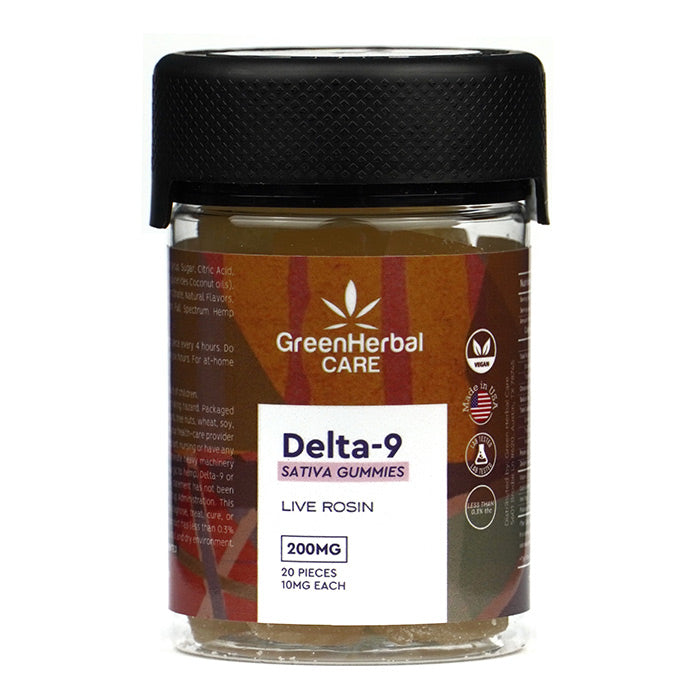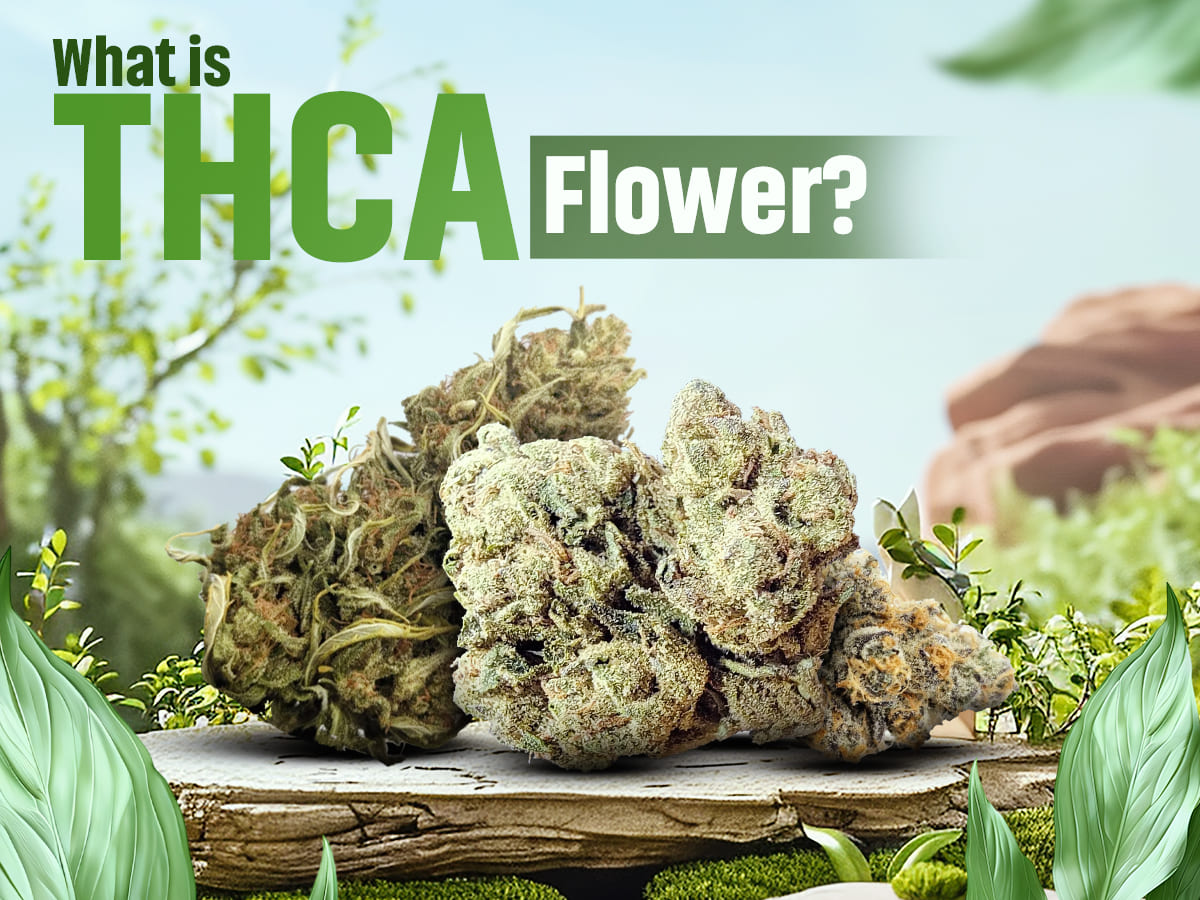If you’ve been hearing a lot about THCA flower, you’re not alone. It’s one of the fastest-growing corners of the hemp market, and it raises smart questions: What is THCA flower, exactly? Is it legal? Does it get you high? Will it show up on a drug test? This guide answers those questions in plain English and points you to the kinds of THCA products you’ll find at modern hemp retailers—without making any medical claims.
THCA, in One Sentence
THCA (tetrahydrocannabinolic acid) is the natural, non-intoxicating acidic form of THC found in raw cannabis and hemp. Heat (or time) converts THCA into Δ9-THC, which is intoxicating. That heat-driven conversion is called decarboxylation.
Does THCA Flower Get You “High”?
Raw THCA isn’t intoxicating. But when you smoke, vape, or bake THCA flower, you apply heat and convert THCA → Δ9-THC, which can feel like traditional cannabis. That’s why many shoppers treat THCA flower similarly to high-THC flower despite the label reading “hemp.” The key is the how: consume it without heat (for example, in raw preparations) and you won’t decarb much THCA; apply heat and you likely will. Read more about it on our blog: Does THCA Get You High?
Shop THCA Flowers
Federal Law in a Nutshell
Under the 2018 Farm Bill, hemp (and its “derivatives, extracts, cannabinoids, isomers, acids…”) is federally lawful if Δ9-THC is ≤ 0.3% by dry weight. That definition is why THCA flower can be sold as “hemp” so long as the Δ9 number stays under 0.3% on a dry-weight label test—even if the total potential THC after heating would be higher. Enforcement frameworks continue to evolve, but that’s the current baseline.
The Texas Picture (And Recent Headlines)
Texas has been a national focal point. In June 2025, Gov. Greg Abbott vetoed Senate Bill 3, which would have broadly banned THC products, preserving the state’s hemp industry for now.
At the same time, rules around specific formats are changing. As of September 1, 2025, Texas implemented a targeted vape ban on cannabinoid-containing vape pens (including THCA), focusing on sales and marketing rather than possession. Other regulatory actions and proposals are still in motion. Always check the latest guidance before purchasing or shipping.
Texas officials are also pushing agencies to tighten hemp THC product regulations, signaling more rulemaking on testing, packaging, and access. Expect ongoing updates as state health, alcohol, and public safety agencies respond.
Bottom line in Texas: THCA flower and other hemp items remain on shelves, but delivery methods (like vapes) and marketing rules are under heightened scrutiny. Laws change—verify local rules before you buy or travel.
Will THCA Show Up on a Drug Test?
Most workplace tests don’t look for THCA itself. They look for THC metabolites (especially THC-COOH) that appear after THCA converts to THC and your body metabolizes it. If you apply heat and consume THCA flower, you can produce the same metabolites as traditional cannabis and trigger a positive test. Detection windows vary by usage, biology, and test type, but urine tests can flag use for days to weeks in frequent users.if
How long does THCA stay in your system? Estimates differ, but casual use can clear in several days, while chronic use can linger 30+ days (hair tests reach ~90 days). There’s no proven shortcut to “beat” a legitimate test—time and abstinence remain the only reliable methods.
Benefits, Uses, and What to Expect (No Medical Claims)
People reach for THCA flower for flavor, aroma, and a familiar experience when heated. Others like raw, unheated applications for culinary experiments or to explore non-intoxicating formats. As with any hemp/cannabis product:
- Start low, go slow, and learn your response.
- Choose products with recent third-party lab tests (COAs).
- Store in a cool, dark place to protect terpenes and cannabinoids.
No medical or therapeutic claims here—just practical, consumer-level tips.
Product Styles You’ll Typically Find
Modern hemp retailers usually organize THCA products like this:
- THCA flower (whole bud) in classic strain styles — sativa, indica, and hybrid.
- Pre-rolls for convenience and consistency.
- Exotics and limited drops that highlight unique or rare terpene profiles.
- Hash or infused options wherever permitted by state regulations.
Examples of how a Texas retailer presents these categories today include THCA flower pages, exotic/strain collections, and store locators that clarify in-state shopping options. Product pages often emphasize recent Certificates of Analysis (COAs), strain lineage, and flavor notes to guide responsible choices.
How to Read a COA (and Why It Matters)
A good Certificate of Analysis (COA) should list the following key details:
- Δ9-THC (dry weight) and THCA percentages.
- Total THC calculation (often labeled as “Max THC” after conversion).
- Terpene profile (if available) to understand aroma and experience.
- Safety panels — testing for microbials, heavy metals, and residual solvents where applicable.
Fresh, recently dated COAs are your best guide. They verify what’s on the label and help you compare products objectively and safely.
THCA vs. THC vs. “Total THC”
You already know what THCA flower is. Now, take a look at this quick comparison:
- THCA: acidic, non-intoxicating in raw form; converts to THC with heat or over time.
- Δ9-THC: intoxicating; federal hemp threshold is ≤ 0.3% Δ9-THC by dry weight.
- Total THC: many labs calculate this as Δ9 + (THCA × 0.877) to estimate potential THC after decarboxylation. You’ll often see this listed as “Max THC” on COAs.
Different states emphasize different numbers. Federal labeling focuses on Δ9-THC dry-weight levels, which is why THCA flower sits in a gray area for many consumers and regulators.
Will Shipping or Storage Change Anything?
Heat and time slowly decarb THCA. Long, hot shipping routes or poor storage can nudge that conversion and change test results. Keep flower sealed, cool, and dark. If you’re buying during summer or shipping to warm climates, choose faster shipping and plan to store products properly on arrival. It’s the same chemistry behind why baking converts THCA to THC.
Choosing Your First (or Next) THCA Flower
Here’s a simple, practical checklist to help you pick the right THCA flower for your preferences:
-
Match the vibe: Sativa-leaning for brightness and focus; indica-leaning for nighttime; hybrids for balance (naming conventions vary by brand).
-
Check the COA date: Newer test results mean fresher data.
-
Look for terpene notes: Citrus and pine often feel “lively,” while earthy or herbal tones feel more “grounded.”
-
Start small: One or two puffs can tell you a lot about your personal response.
-
Mind local rules: Especially around vapes in Texas and age restrictions in other states.
A Quick Word on Brand Shopping
When you buy THCA online from a modern hemp retailer, you’ll typically see:
- THCA flower pages with strain menus and lab links.
- Pre-rolls and exotics for convenience or flavor-forward picks.
- In-store options in Texas (check locations and hours) plus online ordering where permitted.
Look for clear product descriptions, recent COAs, and straightforward shipping or returns information. That level of transparency is a strong trust signal in this fast-moving hemp marketplace.
About Green Herbal Care
Green Herbal Care is a Texas-based hemp retailer known for offering high-quality, lab-tested cannabis and wellness products. Built on a foundation of transparency and education, the brand focuses on helping people explore hemp safely and confidently. Every product—from THCA flower to gummies, oils, and tinctures—is sourced from trusted growers and tested by accredited labs for purity and consistency.
With stores across Texas and a convenient online shop, Green Herbal Care bridges accessibility with reliability. The team behind the brand believes that hemp should be approachable, clearly labeled, and backed by real data. Whether you’re new to THCA or already experienced, Green Herbal Care makes finding verified, high-grade hemp products simple and stress-free.
The Takeaway
So, what is THCA flower? This hemp-derived bud sits at the intersection of chemistry, labeling, and state rules. Raw THCA isn’t intoxicating, but heat converts it into classic THC—so your experience depends on how you consume it. Federally, the Δ9-THC dry-weight limit still governs hemp, while states like Texas continue to fine-tune how these products are sold (especially vapes). If you’re new, start slow, read the COA, and keep an eye on local law. If you’re more experienced, dig into terpene profiles and storage—those details shape flavor and feel just as much as the numbers on the label.
As with any cannabis-adjacent product, stay informed and shop responsibly. The rules are evolving, and the best experience comes from pairing good information with good products.
Frequently Asked Questions
Is THCA the same as Delta-9 THC?
No. THCA is the raw, inactive form of THC. It becomes Delta-9 only when heated or aged, which is why smoking or baking changes its effects.
Can you travel with THCA flower?
Technically, THCA hemp meeting federal limits is lawful, but traveling between states can be risky. Rules differ everywhere, so always check local laws before crossing borders.
Does THCA have a smell or flavor like cannabis?
Yes. THCA flower shares the same terpenes that create cannabis’ aroma and taste. Each strain’s terpene mix decides whether it smells fruity, earthy, or piney.
How should I store THCA flower long-term?
Keep it cool, dark, and airtight. Excess heat or sunlight causes THCA to degrade faster, changing potency and aroma over time. Glass jars work best.
What’s the difference between THCA flower and CBD flower?
Both come from hemp, but THCA can convert into THC when heated, while CBD stays non-intoxicating. The key difference is potential psychoactivity once you apply heat.


